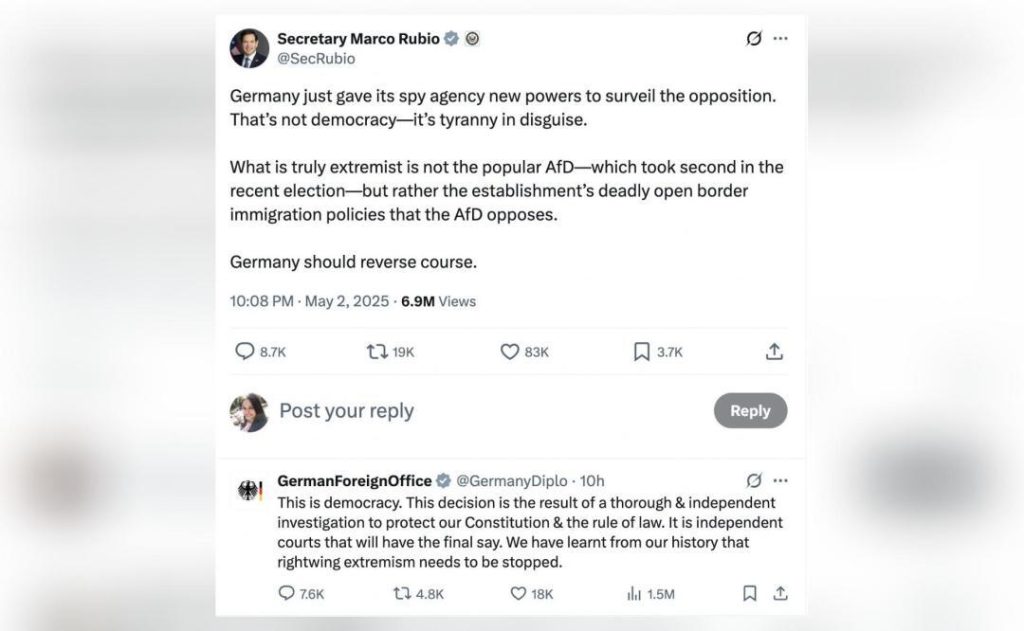
US’ Rubio & German Govt Clash Over AfD Party’s ‘Extremist’ Tag
The diplomatic tensions between the United States and Germany have escalated as US Secretary of State Marco Rubio and the German Foreign Ministry clashed over the extremist designation of the far-right Alternative for Germany (AfD) party. The controversy arises from Germany’s spy agency, the Federal Office for the Protection of the Constitution (BfV), labeling the AfD party as “extremist” due to its alleged ties to neo-Nazis and other far-right groups.
Rubio, who is known for his strong stance against extremism, accused Germany of enabling “tyranny in disguise” by designating the AfD party as extremist. He claimed that the move was a “serious mistake” that would only serve to further polarize the country. Rubio’s remarks were seen as a direct challenge to the German government, which has long been grappling with the rise of far-right extremism.
In response to Rubio’s criticism, the German government maintained that the decision to label the AfD party as extremist was the result of a thorough investigation to protect the country’s Constitution. The German Foreign Ministry stated that the BfV’s findings were based on evidence of the party’s alleged connections to extremist groups, including neo-Nazis.
The controversy surrounding the AfD party’s extremist designation has sparked a heated debate in Germany, with many politicians and civil society organizations expressing concerns over the party’s growing influence and alleged ties to extremist groups. The AfD party, which was founded in 2013, has gained significant popularity in recent years, particularly among disaffected voters who feel that traditional political parties have failed to address their concerns.
The party’s anti-immigrant and anti-Muslim rhetoric has resonated with many voters, particularly in the eastern regions of Germany where unemployment and poverty rates are higher. However, the AfD party’s ideology has also been criticized for being xenophobic and Islamophobic, with many accusing the party of spreading hate speech and promoting violence against minorities.
The US Secretary of State’s criticism of Germany’s decision to label the AfD party as extremist has sparked concerns over the potential for further polarization and division in the country. Many have argued that Rubio’s remarks were an attempt to undermine Germany’s sovereignty and intervene in its internal affairs.
Despite the controversy, the German government has maintained that its decision to label the AfD party as extremist was necessary to protect the country’s democracy and prevent the spread of hate speech and extremism. The government has also emphasized that the designation does not imply that the AfD party is illegal, but rather that it is a warning to the public about the party’s alleged connections to extremist groups.
The controversy has also raised concerns over the potential for further tensions between the US and Germany, particularly in the wake of the COVID-19 pandemic, which has strained relations between the two countries. The pandemic has highlighted the need for international cooperation and solidarity, and the controversy surrounding the AfD party’s extremist designation has threatened to undermine these efforts.
In conclusion, the clash between US Secretary of State Marco Rubio and the German Foreign Ministry over the AfD party’s extremist designation has highlighted the complex and often contentious nature of international relations. The controversy has also underscored the need for greater international cooperation and dialogue to address the growing threat of extremism and promote peace and stability around the world.



